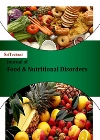About the Journal of Food and Nutritional Disorders

Welcome to the Latest Edition of Journal of Food and Nutritional Disorders
Submission Open for Volume 9
Indexing: Cross Ref, Academic Keys, J-Gate, Research Bible, OCLC world cat, Scilit, Publons, Google Scholar
Journal of Food & Nutritional Disorders (JFND) is a scientific, peer -reviewed, academic journal which promotes rigorous research that makes a significant contribution in advancing knowledge and provides important forum for researchers and scholars to exchange their knowledge on current advancement in food Science and research, nutrition and its disorders. JFND is an online Hybrid Model journal which offers authors a choice in publishing their research through subscription as well as open access for high visibility, unlimited access, usage and increased citations.
JFND accepts wide range of articles including research, review, short communication, case report, rapid communication, letter to the editor, conference proceedings etc. JFND includes all major themes pertaining to Food sciences, Food technology and Human Nutrition.
Submit manuscripts to the Editorial Office through Online Submission System
Scope of the Journal includes:
- Food Science and Technology
- Food and Nutrition
- Food Quality and Safety
- Clinical Nutrition and Human Nutrition
- Childhood Obesity
- Diet and Cancer
- Nutrition Deficiencies and Eating Disorders
- Food Microbiology, Processing and Preservation
- Food Safety and Quality Control
- Nutrition Chemistry
- Synthesis of Biofunctional Molecules
- Food Engineering
- Food Biotechnology
- Food Microbiology
- Probiotics, Functional Food and Nutraceuticals
- Functional Food and Advanced Nutrition
- Food Chemistry and Health
- Food Technology and Beverages
- Food and Nutrition Quality
- Food and Beverage Packaging
- Food and their Byproducts
- Impact of Food due to SARS-MERS-CoVID-19
- Food Intolerance
- Nutrition Cancer
- Food Additives
Impact Factor
2020 Journal Impact Factor is the ratio of the number of citations achieved in the year 2020 based on Google Search and Google Scholar Citations to the total number of articles published in the last two years i.e. in 2018 and 2019. Impact factor measures the quality of the Journal. If ‘X’ is the total number of articles published in 2018 and 2019, and ‘Y’ is the number of times these articles were cited in indexed journals during 2020 then, impact factor = Y/X.
Food Allergy
Food allergy is an immune system reaction that occurs soon after eating a certain food. Even a tiny amount of the allergy-causing food can trigger signs and symptoms such as digestive problems, hives or swollen airways. Allergies occur when your immune system reacts to a foreign substance. The most common food allergy causing foods are peanuts, milk, eggs, tree nuts, fish, shellfish, soy, and wheat. In other words it is food abnormal responses to harmaful foods. A food allergy is also known as food hypersensitivity.
Public Health Nutrition provides the understanding and causes of, and approaches and solutions to, nutrition-related public health achievements, situations and problems around the world. Public Health Nutrition (PHN) focuses on the promotion of good health through nutrition and the primary prevention of nutrition related illness in the population. Public health nutrition is the science and art of preventing disease, prolonging life and promoting health through the medium of nutrition. The aim of those working as public health nutritionists is for everyone to achieve greater health and well-being by making healthier food and nutrition-related choices.
Food Chemistry
The interactions and chemical process between the biological and non-biological components of food is known as food chemistry. Some of the biological components include meat, poultry, beer and milk. It includes carbohydrates, lipids and proteins in biochemistry. A specialized phase of food technology concerned with an understanding of the fundamental changes of composition and the physical condition of foodstuffs which may occur during and subsequent to industrial processing.
Food Science
Food Science is the study of physical, chemical and biological properties of food. Food Science includes food processing and food technology. Microbiology, chemical engineering, and biochemistry are the disciplines which come under food science.
Food and Nutrition
Nutrition is the process to consume food for health and growth of body. In this body maintain itself by transforming food into energy and body tissues. Food provides essential substance which is called nutrients. Body utilizes these nutrients for repair and maintenance of tissues and to keep its different systems working smoothly.
Nutritional biochemistry
Nutritional biochemistry is the study of nutrition as a science which deals with the physiology, medicine, microbiology, pharmacology, chemistry and biology and uses these sciences for the study of health, diet, nutrition, disease and drug treatment. Nutritional biochemical therapy saves lives, reduces morbidity, improves health outcomes, and reduces healthcare costs and patients.
Food Microbiology
Food Microbiology is the science which deals with the microorganisms involved in the spoilage, contamination, and preservation of food. Food microbiology the study of microorganisms, which have both beneficial and deleterious effects on the quality, and safety of raw and processed meat, poultry, and egg products. It focuses on the general biology of the microorganisms that are found in foods.
Nutritional Disorders
Nutritional Disorder is the disorder caused by an insufficient intake of food or of certain nutrients, by an inability of the body to absorb and use nutrients, or by overconsumption of certain foods. In other words Nutritional Disorder is nutritional imbalance which is due to either over nutrition or under nutrition. It may cause by the presence of a toxin in the diet.
Eating Disorder
Eating Disorder is one of the psychological disorders which are caused by serious disturbances of eating behavior. It can have life-threatening consequences for humans. It includes Anorexia nervosa, Bulimia nervosa, Binge eating. It involve either insufficient or excessive food intake to the detriment of an individual's physical and mental health. Eating disorders can harm the heart, digestive system, bones, and teeth and mouth, and lead to other diseases.
Nutraceuticals
Nutraceuticals are food, or parts of food, that provide medical or health benefits, including the prevention and treatment of disease. It includes Dietary Supplements including botanicals, Functional Foods and Medicinal Foods. Nutraceuticals may be a naturally nutrient-rich or medicinally active food or it may be a specific component of a food, such as the omega-3 fish oil that can be derived from salmon and other cold-water fish.
Diet Therapy
Diet therapy is the branch of dietetics concerned with the use of foods for therapeutic purpose. It is method of eating prescribed by a physician to improve health. Diet therapy usually involves the modification of an existing dietary lifestyle to promote optimum health. Therapeutic diets are modified for nutrients, texture and food allergies or food intolerances.
Food Processing and Preservation
Food preservation includes preventing the growth of bacteria, fungi or other micro-organisms as well as retarding the oxidation of fats that cause rancidity thus promoting longer shelf life and reduced hazard from eating the food. Food processing is the transformation of raw ingredients, by physical or chemical means into food, or of food into other forms.
Food Safety & Quality Control
Food safety describes handling, preparation, and storage of food in ways that prevent foodborne illness. Food safety is defined as the assurance that the food will not cause harm to the consumer when it is prepared and/or eaten according to its intended use. It includes the origins of food practices relating to food labeling, food hygiene, food additives and pesticide residues.
Food Hygiene
Food hygiene is the preservation and preparation of foods in a manner that ensures the food is safe for human consumption. Food Hygiene is the conditions and practices that preserve the quality of food to prevent contamination and foodborne illnesses. Properly handling and preparing food greatly reduces the risks of getting foodborne illnesses.
Food Additives
Food additives are substances added to food to enhance its flavor or appearance or to preserve it. Food Additives also having some nutritive value. These may be salt, monosodium glutamate, or citric acid, used in the commercial processing of food as preservatives, antioxidants, emulsifiers, etc. Food additives afford the convenience and enjoyment of a wide variety of appetizing, nutritious, fresh, and palatable foods.
Clinical nutrition Malnutrition
Nutrition of patients in health care is called clinical nutrition. Malnutrition is the unhealthy condition that results from not eating enough food or not eating enough healthy food: poor nutrition. Clinical malnutrition causes are Cachexia caused by diseases, injuries and difficulties with ingestion, such as stroke, paresis, dementia, depression and dysphagia.
Nutrition & Metabolism Disorders
Nutrition consists of proteins, carbohydrates, and fats. These substances are broken down by enzymes in your digestive system, and then carried to the cells where they can be used as fuel to keep its different systems working smoothly. Metabolism is the chemical process your body uses to transform the food you eat into the fuel that keeps you alive. A metabolic disorder occurs when abnormal chemical reactions in your body disrupt this process.
Nutritional Deficiencies
Nutritional Deficiencies is an inadequate supply of essential nutrients in the diet which results in malnutrition or disease. Nutritional deficiencies can lead to a variety of health problems, such as problems of digestion, skin problems, stunted or defective bone growth, and even dementia.
Anorexia Nervosa
Anorexia nervosa is a psychiatric disorder characterized by an unrealistic fear of weight gain, self-starvation, and conspicuous distortion of body image. Key features for Anorexia Nervosa are refusal to maintain a healthy body weight, an intense fear of gaining weight, a distorted body image. Inadequate eating or excessive exercising results in severe weight loss.
Nutritional Supplements
Nutritional supplement is to provide nutrients which are not consumed in sufficient quantities. Supplements include vitamins, minerals, fiber, fatty acids, or amino acids, among other substances. Nutritional supplements are added to the diet to boost overall health and energy, to provide immune system support and reduce the risks of illness and age-related conditions, to improve performance in athletic and mental activities, and to support the healing process during illness and disease.
Pediatric Nutrition
Pediatric nutrition is the maintenance of a proper well-balanced diet consisting of the essential nutrients and the adequate caloric intake necessary to promote growth and sustain the physiologic requirements at the various stages of a child's development. Pediatric nutrition include the nutritional needs of infants, children, and adolescents.
Fast Editorial Execution and Review Process (FEE-Review Process):
Journal of Food and Nutritional Disorders is participating in the Fast Editorial Execution and Review Process (FEE-Review Process) with an additional prepayment of $99 apart from the regular article processing fee. Fast Editorial Execution and Review Process is a special service for the article that enables it to get a faster response in the pre-review stage from the handling editor as well as a review from the reviewer. An author can get a faster response of pre-review maximum in 3 days since submission, and a review process by the reviewer maximum in 5 days, followed by revision/publication in 2 days. If the article gets notified for revision by the handling editor, then it will take another 5 days for external review by the previous reviewer or alternative reviewer.
Acceptance of manuscripts is driven entirely by handling editorial team considerations and independent peer-review, ensuring the highest standards are maintained no matter the route to regular peer-reviewed publication or a fast editorial review process. The handling editor and the article contributor are responsible for adhering to scientific standards. The article FEE-Review process of $99 will not be refunded even if the article is rejected or withdrawn for publication.
The corresponding author or institution/organization is responsible for making the manuscript FEE-Review Process payment. The additional FEE-Review Process payment covers the fast review processing and quick editorial decisions, and regular article publication covers the preparation in various formats for online publication, securing full-text inclusion in a number of permanent archives like HTML, XML, and PDF, and feeding to different indexing agencies.
 Spanish
Spanish  Chinese
Chinese  Russian
Russian  German
German  French
French  Japanese
Japanese  Portuguese
Portuguese  Hindi
Hindi 





